Assuming the Position
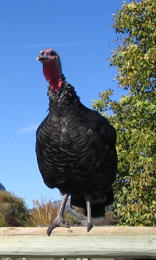
During the 1800’s, missionaries flooded British Columbia with their hymns What they saw was a collection of societies which kept slaves, engaged in predatory warfare,

My grandmother once wrote from Germany to say, “Look out! There’s one behind every rock.” She was very worried about her little grandsons out there, with flint-tipped arrows sticking out of them like as if they were pincushions. Two generations earlier society women like her were designing folk costumes for their peasant women over cups of tea. She became a doctor instead. She had a thing about pin cushions, I suspect.
erected elaborately carved grave posts decorated with thunderbirds and bears, ravens and wolves in front of their houses, communicated with the dead through shamans, and wore animal masks. What the missionaries did not see was a collection of societies which translated the natural abundance of the Northwest Pacific Coast into enduring human power through potlatches, ritually redistributing wealth which would otherwise just rot.
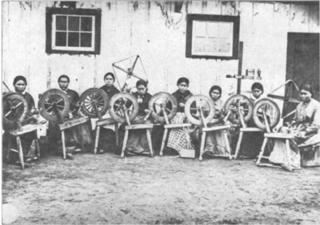
Women in Metlakatla Hard at Work Learning How to Be Irish Peasants
The missionaries saw the work of the Devil. I once had a woman mail copies of three of my books of poetry to me, as she could not bear any longer to have that demonic influence in her house. Galen’s civilization had turned its back on the wilderness.
Here’s some of that ol’ demonism rag, so you can see just what she was up against:
Dark shapes rise out of the salt
into streaming air,
as still as hope --
and with the same bewilderment;
I cannot hold them to any form,
except the power deep within them,
flowing around them,
such as the earth
enclosing a man’s heart with her body.
To put that into perspective, take a look at this bit of peephole photography:
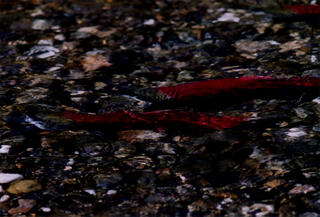
The wilderness rotting away but looking so beautiful while it’s at it. What a sexy wilderness!
Oh, don’t worry. Here comes a missionary to civilize it.

A different kind of missionary, hard at the job of civilizing. He comes from the game of [I]Cheyenne[/I]. Next week I’ll teach you the rules. It’s not something that comes automatically. But once you got them it’s like riding a bicycle. Sometimes you get off the bicycle and it feels like you’re still riding it. Sometimes you just want to dismantle the bicycle back into blender parts. Sometimes you just want to use that blender to make a margarita and relax on the beach. Sometimes.
Speaking of bike riding and the abuse of kitchen appliances, 1000 years after Galen’s back-to-the-land commune, the Germans torched the Louvain Library. Like all libraries, it was a repository for ordered thought. Except maybe the undergraduate library at the University of Texas. They’ve taken out the books and put in couches. The books are all electronic now. The students are thrilled. I bet they are.

Could that be students in Texas printing with a high-speed line printer at 9000 characters per minute in the machine age?
It shouldn’t have come as a surprise. The American poet, Ezra Pound, who spent the Great War in London, while his friends, who he called “the best of a generation,” were butchered almost to the last man in the trenches in France to support a civilization of polite manners, eventually reached the same conclusion in his poem, Homage to Hugh Selwyn Mauberly, in which he lamented how his friends had died for a lie, had died with trench foot and laughter out of dead bellies, for a few gross of old statues and two thousand battered books, in short for a conservative artistic tradition aimed not at freeing the dynamic individual but at subsuming him into a society of refined tastes. People were disgusted with Pound, too. See, he didn’t read the rules to Cheyenne, had he. Important life skills, which it took the 1950s to bring. By that time, Ez was in an insane asylum, though, serving his guests tea out of tuna tins behind the piano. He didn’t get out much.
Geez, you think that’s depressing, try this: tired of free verse just a year after he invented it, Pound based his poem on The Anglican Hymnal.
Lo, the hosts of evil round us
scorn thy Christ, assail his ways;
fears and doubts too long have boun dus,
free our hearts to work and praise.
Grant us wisdom, grant us courae,
for the living of these days.
Hymn 223, Verse 2
Amen. Eighty years later, the rest of us are still writing the damn stuff. Hoooooooo.

What World War I was fought to save.
Pound was an avid reader of the love songs of the troubadour knights of Provence and the heretic culture of the Cathars which they served and which was exterminated by the Inquisition and the King of France. One American herstorian, Norma Lorre Goodrich, uses a study of Old French to put forth the thesis that the Cathar prietesses died protecting the Holy Grail of the Celtic Church. Here it is again, in the Lego version. Such chutzpah! Of the songs of the troubador Arnaut Daniel, Pound said that “every word is like a note picked out on the strings of a lute.” I’ve had a conversation with a cherry farmer in East Kelowna, British Columbia, who thought that was one of the more clarifying things he had ever read. Extending this thought into the machine age, Pound invented a form of prose in which each thought was set against each other thought. The fruitgrower who comes to the things has to put the pieces together for himself.
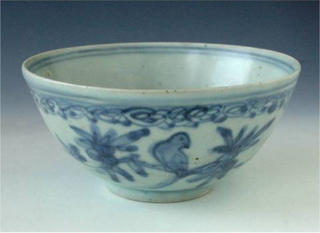
Ming bowl with nightingale. Who knew?
Here’s what the fruitgrowers know, after all this time: pear trees are sexual creatures. The fruit of a Bosc growing next to a Bartlett does not enclose Bosc seeds, nor does the Bartlett. Similarly, the Bartlett does not contain Bartlett seeds, nor does the Bosc. Beurre d’Anjou, Sierra, Clapp’s Favourite, Flemish Beauty, Sierra, Comice, on and on and on: the entire pear tree is feminine, with the exception of the stamens of each flower. Those are male, like the tiny, harmless male mosquitoes female mosquitoes keep for their pleasure.

Thanksgiving Sunday, 2005. Amidst the orchards in Oliver, B.C.
My childhood in British Columbia was spent pruning, thinning, weeding, watering, and picking pears in an orchard planted by a Canadian Army major in the Similkameen Valley while Pound was playing house with Napoleon and God. The house stood on a point of land, catching the full force of the wind, like a sailing ship rounding the Cape of Good Hope. Every night it heaved and shook. You didn’t tell ghost stories in that house. It was just too close to the bone. With true military precision, Major Kavanaugh had planted the orchard around the house by surveying each tree in place. That orchard was one for the history books. In the history of agriculture in Canada, it is the only orchard set up in a mathematically perfect grid, with no tree out of line even a quarter inch, in any direction, on any angle. That orchard was a geometry textbook. You could have used it as grid with which to map the stars, or on which to sight in artillery. You could have used it as a training range. Kavanaugh let the place grow to weeds eight feet tall. At the end of every September and in the early days of October, the last overripe pears were being hollowed out by wasps in the trees. Their perfume rose up to the stars. Still are. These are the days.

A little bit of the wild rangeland of Tom Ellis’ ranch in the Okanagan, locked up in a chastity belt, its perfume rising to the stars. Presumably, this orchard was what Galen’s monks in St. Gallen had in mind. Oh, folks, let the pilgrimage begin. South of Penticton on Highway 97, turn left at the Super Save Gas Station (109.9 a litre, cheapest in the valley). After two blocks, it’s on your left. Breathe deep. Enjoy.
There were five hundred Bartlett pear trees on that orchard on the old Barcelo Ranch below Fairview Mountain, but, really, there has only ever been one Bartlett pear tree. All the rest, millions of them on five continents, have been cloned.
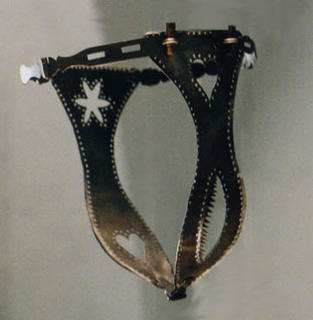
Chastity belt, Salzburg, Austria.
We call that grafting. The Germans call it “nobling.” It takes about one second to noble a pear tree by hand. For tools you will need a sharp chisel-bladed knife and a rubber band. You will have to kneel in the dirt.
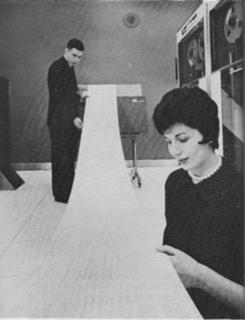
Output from a high speed line printer.
And so, here we are, deep in prayer.
What next? Bartlett’s big lie, quince, Cheyenne, Dolly (who was old before her time), and how to think like a computer.

0 Comments:
Post a Comment
<< Home